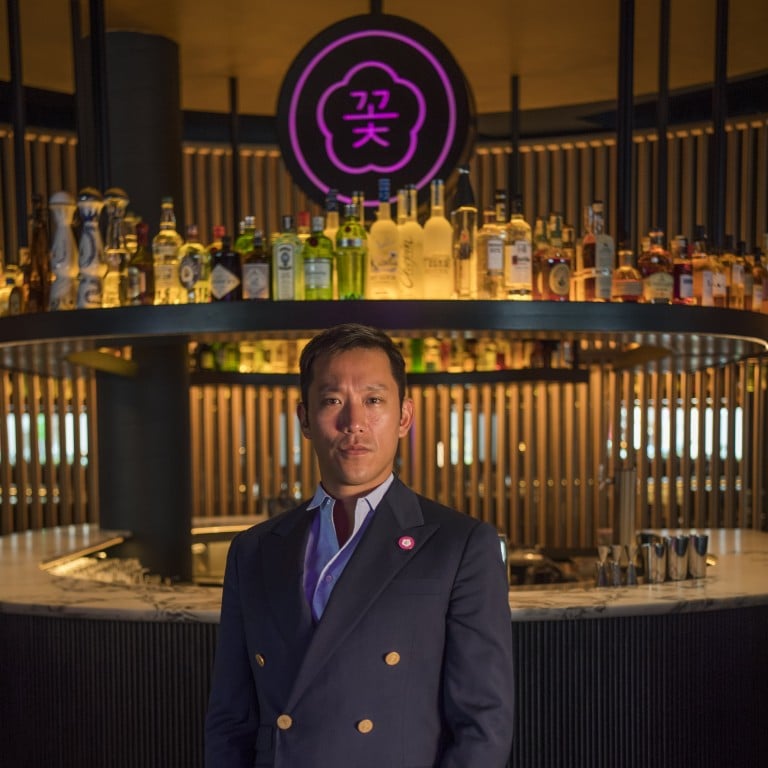
Profile | Michelin-star Korean-American steakhouse Cote’s creator, Simon Kim, on being ‘authentically you’ as he prepares to open its first outpost in Asia, in Singapore
- Simon Kim grew up in Korea but moved in his teens to New York, where he didn’t fit in. He trained as a chef and opened an Italian restaurant, but it wasn’t him
- He embraced his identity, opened Korean-American steakhouse Cote and saw it earn Michelin stars in New York, then Miami. Now Cote is opening in Singapore
Speaking with Korean-American restaurateur Simon Kim brings to mind Lao Tzu’s famous line from the poem Dao De Jing: “The highest form of goodness is like water.”
“The restaurant business is about people. And people first,” the founder of Korean-American steakhouse Cote, whose New York and Miami outlets each have one Michelin star, explains.
“Whether it’s the landlord or a billionaire, we want to meet and talk to everyone with respect.”
We are meeting in one of Singapore’s newest hotel rooms at the Como Metropolitan Singapore. In November, Cote Singapore will open a few floors down. It is Kim’s first endeavour in Asia and he is here to prepare for its launch.
“I got a phone call from Jean-Georges Vongerichten. I had worked for him previously and he said he found a great partner in [luxury hotelier] Christina Ong in Singapore. The next thing I knew, I was getting a flight here.”
Kim is particular about where Cote opens. The few times he has been to Singapore, its diverse culture and high-quality food options have impressed him, and prompted him to try to learn more each time, he says.
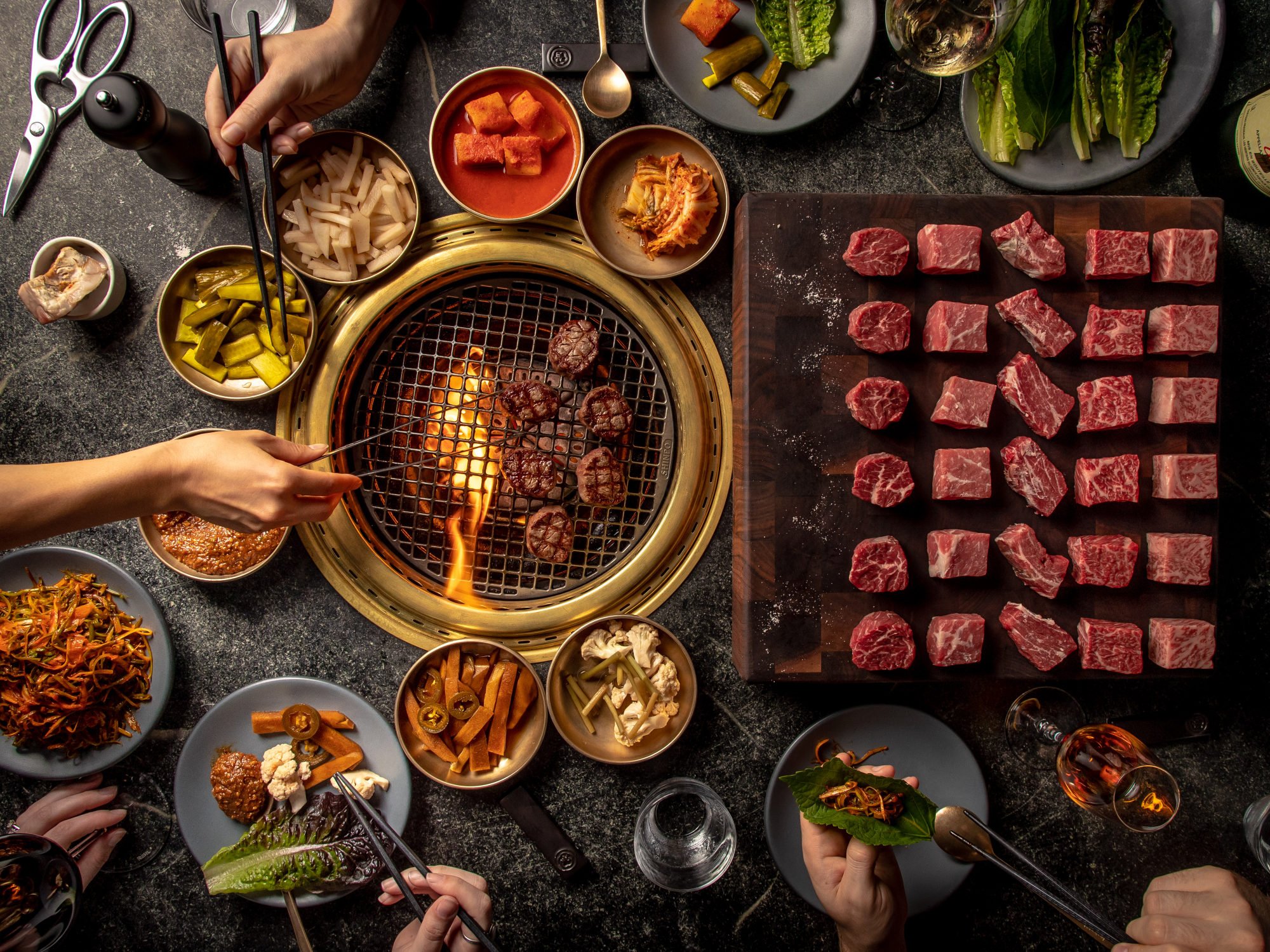
“We don’t want to force ourselves to localise. We want to adapt to the local culture, create a dialogue with it to develop something meaningful,” he says.
Amid his explorations in Singapore, Kim is drawn to the modest pork rib soup, or bak kut teh. He compares this dish to galbi tang in Korean cuisine and is ready to deliver his interpretation when Cote debuts here.
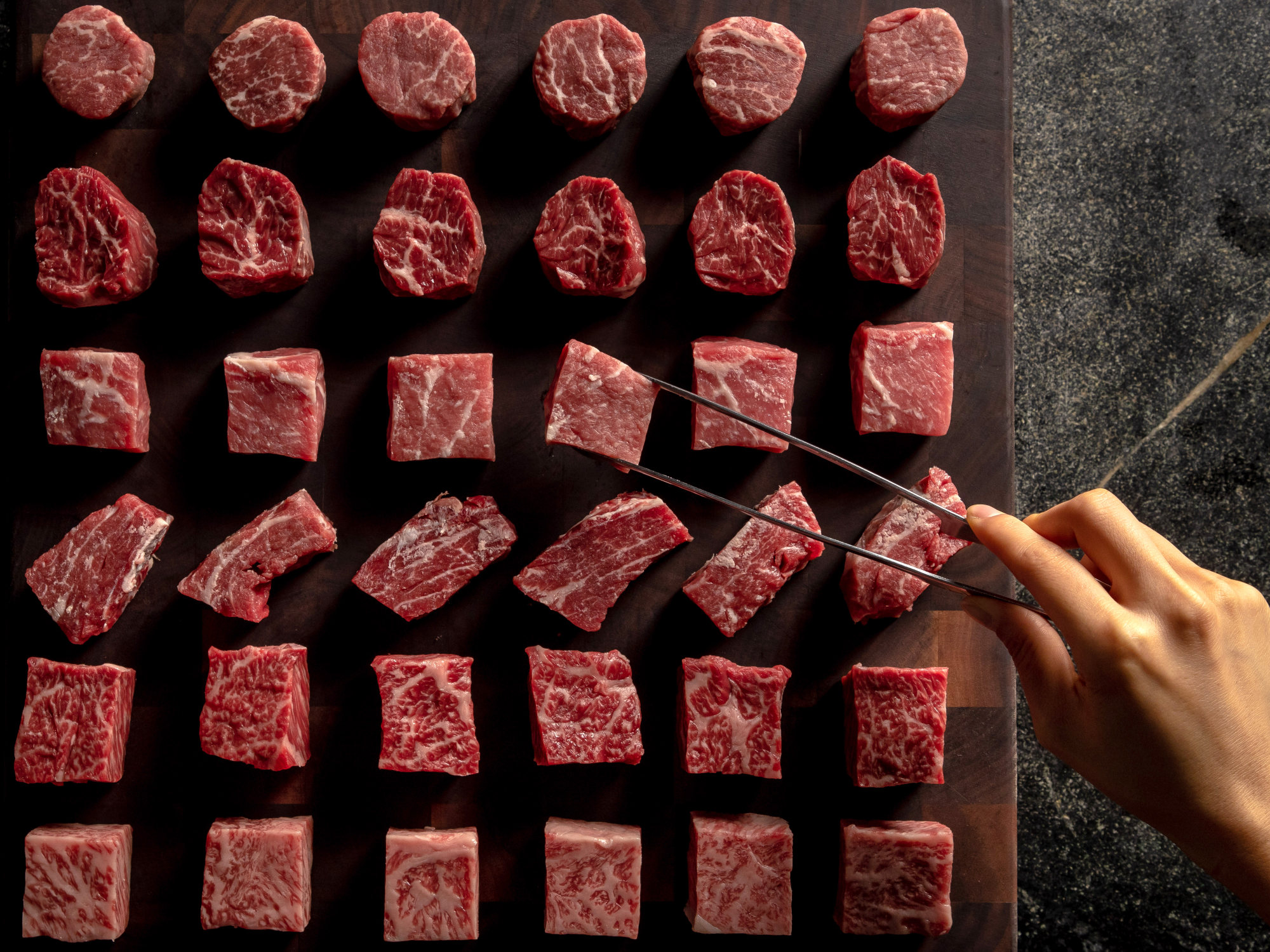
But his top priority is to ensure Cote’s prized cuts and signature dry-ageing room – which demonstrates his commitment to high-quality meats – are in place for the opening.
Cote, New York’s first Korean-style steakhouse, opened in Manhattan’s Flatiron District in 2017. During the coronavirus pandemic, the chance to establish Cote in Miami, Florida, came along and Kim seized it.
On both occasions, he impressed Michelin inspectors with his elegant version of Korean barbecue, his dedication to fine meats, and “enough banchan (side dishes) to cover the table”. Both outlets earned a star in quick time.
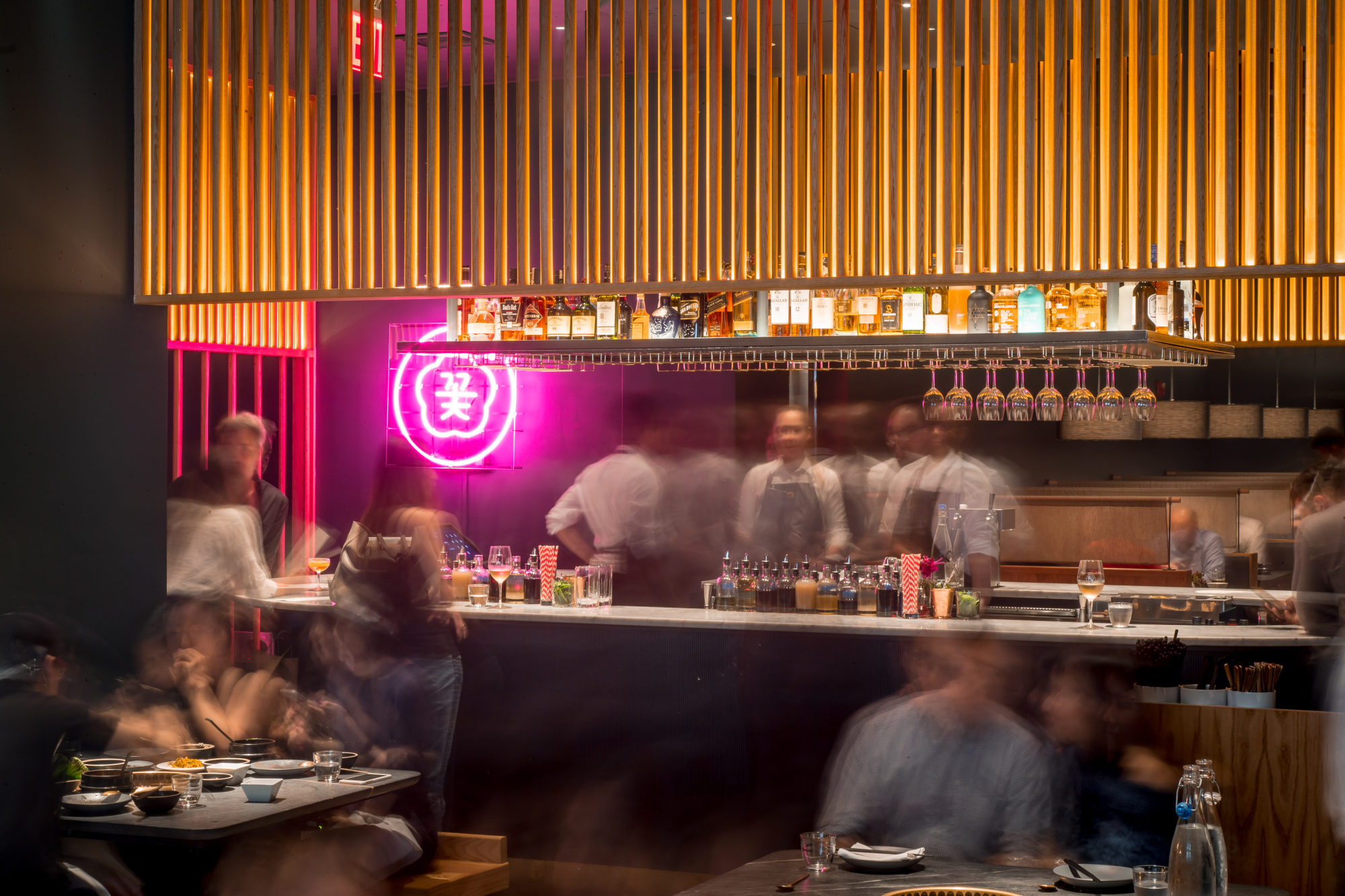
Cote is more than a marriage of Korean barbecue and the great American steakhouse tradition. According to Kim, Cote is dark, edgy, and “almost like a nightclub with lots of exciting elements”.
“Actually, Cote is me. I was born and raised in Seoul until I was 13. I was not that old but not that young, I had my identity and friends, but I was moving to America.”
His two older siblings had been studying art in America and, having spent some years in Korea apart from his mother, it was decided that he, too, should move to the United States.
I didn’t fit in. I was not very studious, I did not know my purpose. There was a lot of insecurity
This was the 1990s. He was uprooted from home, and a part of him had to shut down as he tried to fit into America by conforming to the stereotype that Asians are courteous and subtle, when he was by nature loud and extroverted.
“It was as if something was wrong with me,” Kim says.
Racism, discrimination, disrespect – Kim has seen it all. What made it truly difficult was his sense of not belonging along with his yearning to belong.
“I didn’t fit in. I was not very studious, I did not know my purpose. There was a lot of insecurity,” he confesses.
The struggle was crucial in helping him find himself and, subsequently, create Cote.
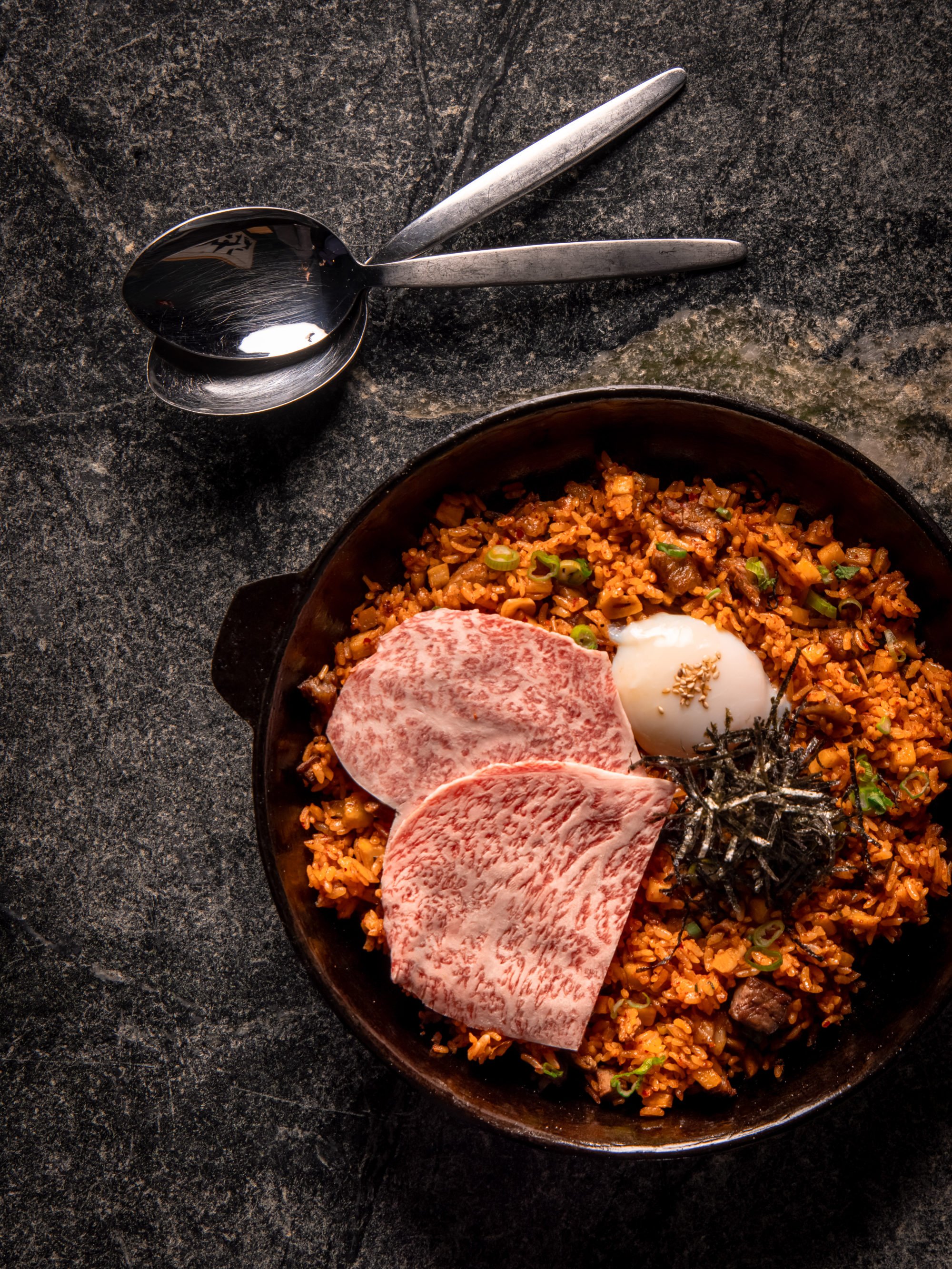
“Cote is not just fine dining, but also fun dining. We have the best of both worlds, the best ingredients, the best caviar, the best wine and we have fire on the table, something primal which brings out the instincts,” he says.
He did not come by this formula easily. In 2013, he opened his first restaurant, Piora, an Italian restaurant whose name meant blossom. It quickly earned a Michelin star but he closed it after four years.
“That was the time I was taught [that] to make it you have to be authentically you. That way, you’re not pretending,” he says.
A Korean chef new to cooking Korean, after a year he earned a Michelin star
Embracing all aspects of his identity helped Kim regain his footing and find purpose, and Cote (pronounced kot), which means flower in Korean, blossomed.
Cote is at its most glamorous at 9pm when everyone is partying.
“So much has gone in to make that party come alive, these details of subtleties that people don’t see. With age, I learn to appreciate every bit of dedication that gives the flower a chance to bloom.”
The Covid-19 pandemic helped Kim see the bigger picture. He realised that the earlier struggles from which he had emerged were the very reason he rode out the health emergency unscathed.
“What used to make me feel insecure, what bothered me the most, ended up giving me strength, grit, and determination, allowing me to be unstoppable,” he says.
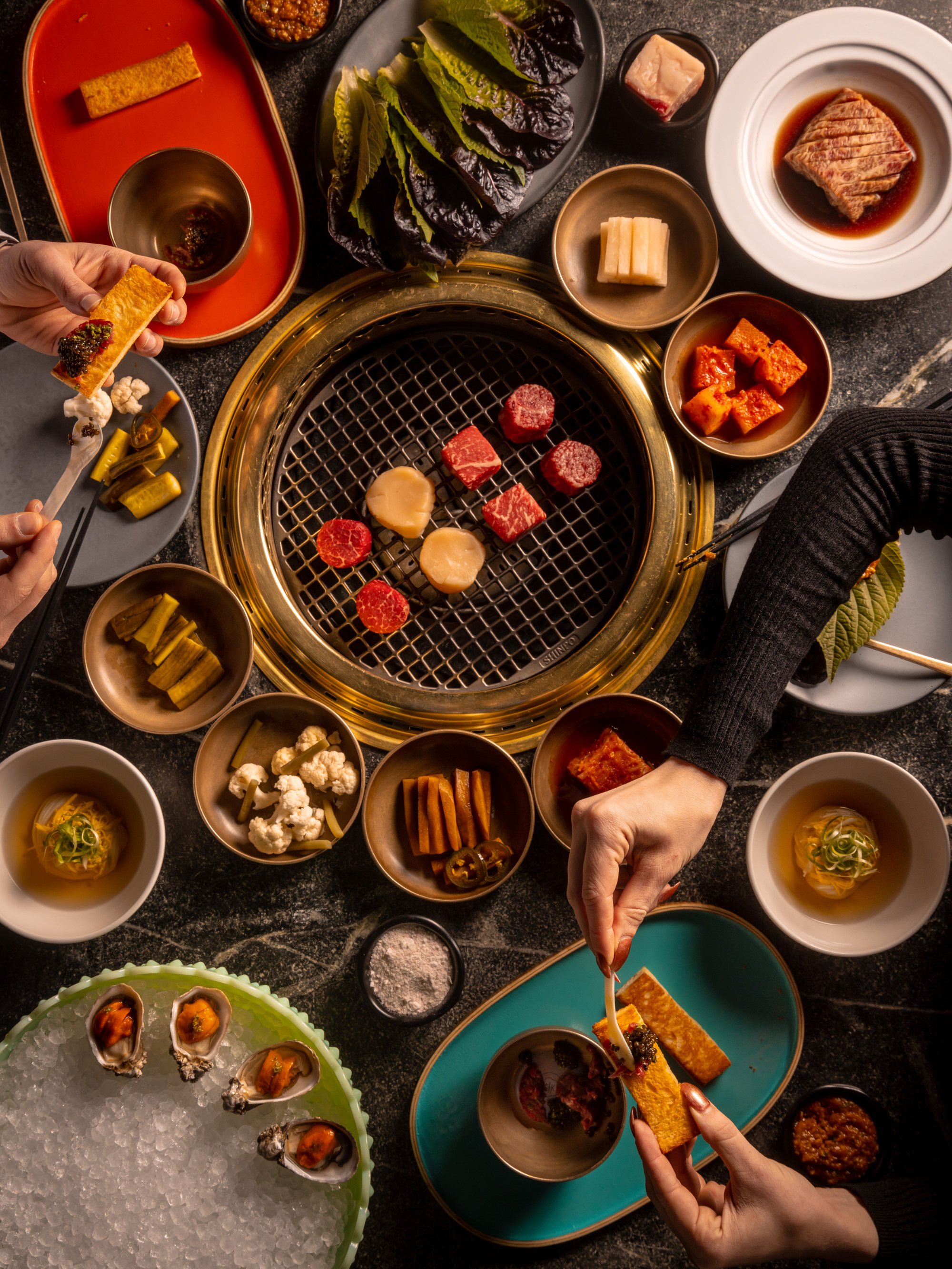
When other restaurants had to shut down, Kim helped Cote adapt to circumstances and pivot to delivery, shipping packaged steak across the United States. It donated 5 per cent of its top line revenue to City Harvest Food Rescue Centre, which feeds some of New York’s poor.
“The teachings my parents gave me instilled in me the importance of being polite, humble and grateful, no matter how much you are in demand,” he explains. “These Asian values I inherited ground me as a person.”
His enterprising mother, who owned a restaurant in Tribeca, New York, served as a role model and was instrumental in guiding Kim into the food industry.
“It was 1997, there were no Korean restaurants outside of K-Town. Tribeca was really trendy, and mom, who was constantly pleasing us with good food, underwent a six-month course in French cooking to present Korean food with French technique.”
Kim recalls celebrities such as Meryl Streep and Gwyneth Paltrow passing through the restaurant doors.
“I was 16 and my entrepreneurial spirit was ignited. It’s like, if mom can do it I can do better,” he says.
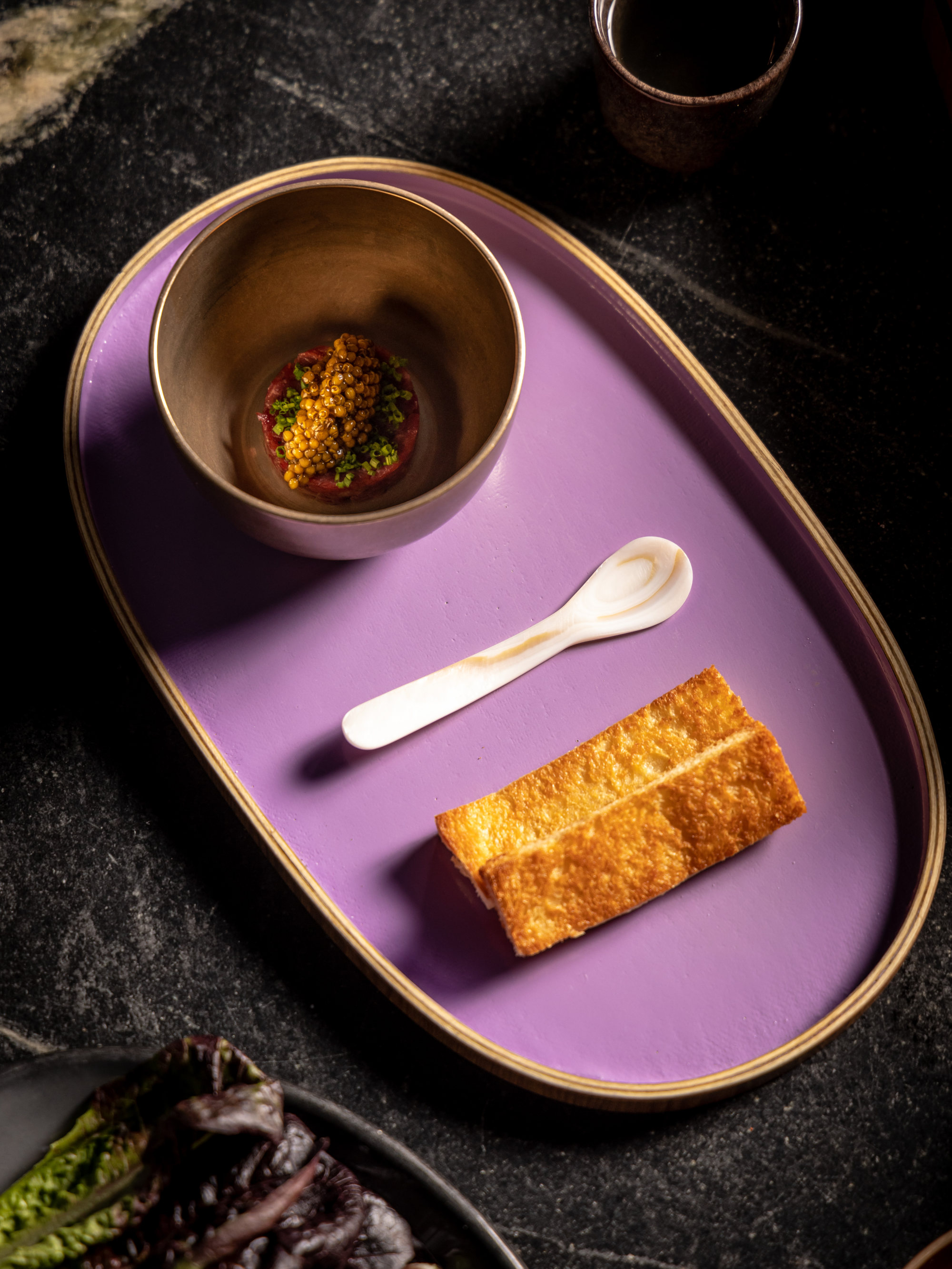
Kim’s father, although an introvert, loved dining out and took the young Kim to fine- dining restaurants in hotels like the Hyatt and Hilton back in Korea.
This upbringing, combined with Kim’s experiences, paved the way for him to enter the restaurant business. He worked for MGM Grand in Las Vegas, for top chefs Thomas Keller and Vongerichten, gaining valuable insights into the industry at a young age.
Asked if opening a restaurant in Korea is on the cards, Kim says someday.
“Korea makes me nervous. They have a strong idea of what is, what ought to be and I am not the most authentic Korean restaurant because that is not my purpose. Cote is just who I am.”
Meditation is my quiet time and a way of coming back to myself. It takes just five minutes. Find a quiet place, breathe in, breathe out.
His next big project is fried chicken, and a healthier version in true Simon Kim style, paired with champagne and wines, plus a serving of probiotic-rich kimchi on the side.
He is passionate about what he is doing and acknowledges that he works too much and too hard, leaving little time left for himself. If he has any, he will be playing tennis with his Cote partner and friend, chef David Shim, or sitting in meditation.
He says: “Meditation is my quiet time and a way of coming back to myself. It takes just five minutes. Find a quiet place, breathe in, breathe out.”
Asked if there is anything he would do differently given a chance, he is adamant there is not.
“The struggles I experienced made me the person I am, and better. So I wouldn’t do anything differently. That said, I definitely want to spend more time with my kids, now four and five, because I signed up for this but they didn’t.”

